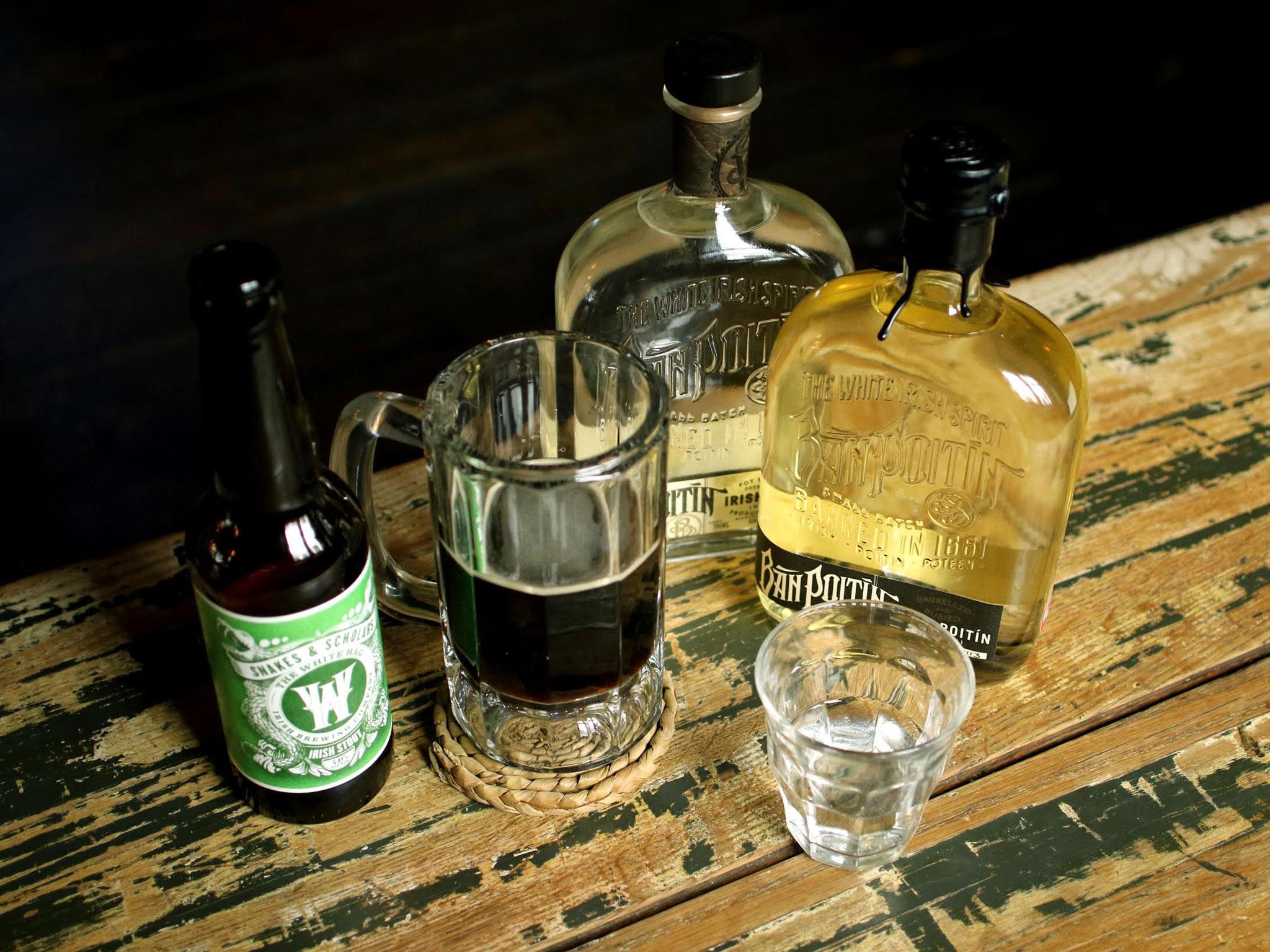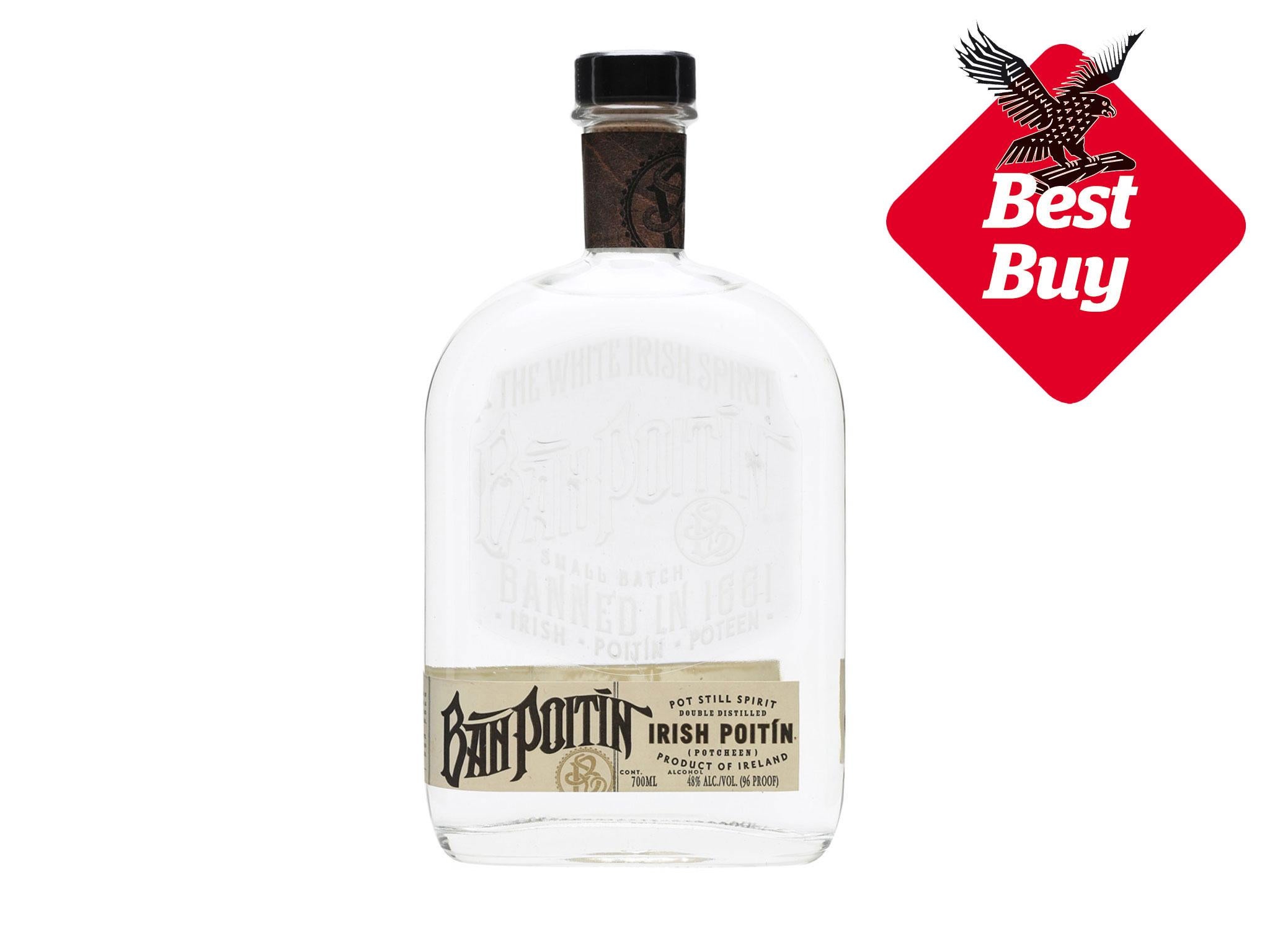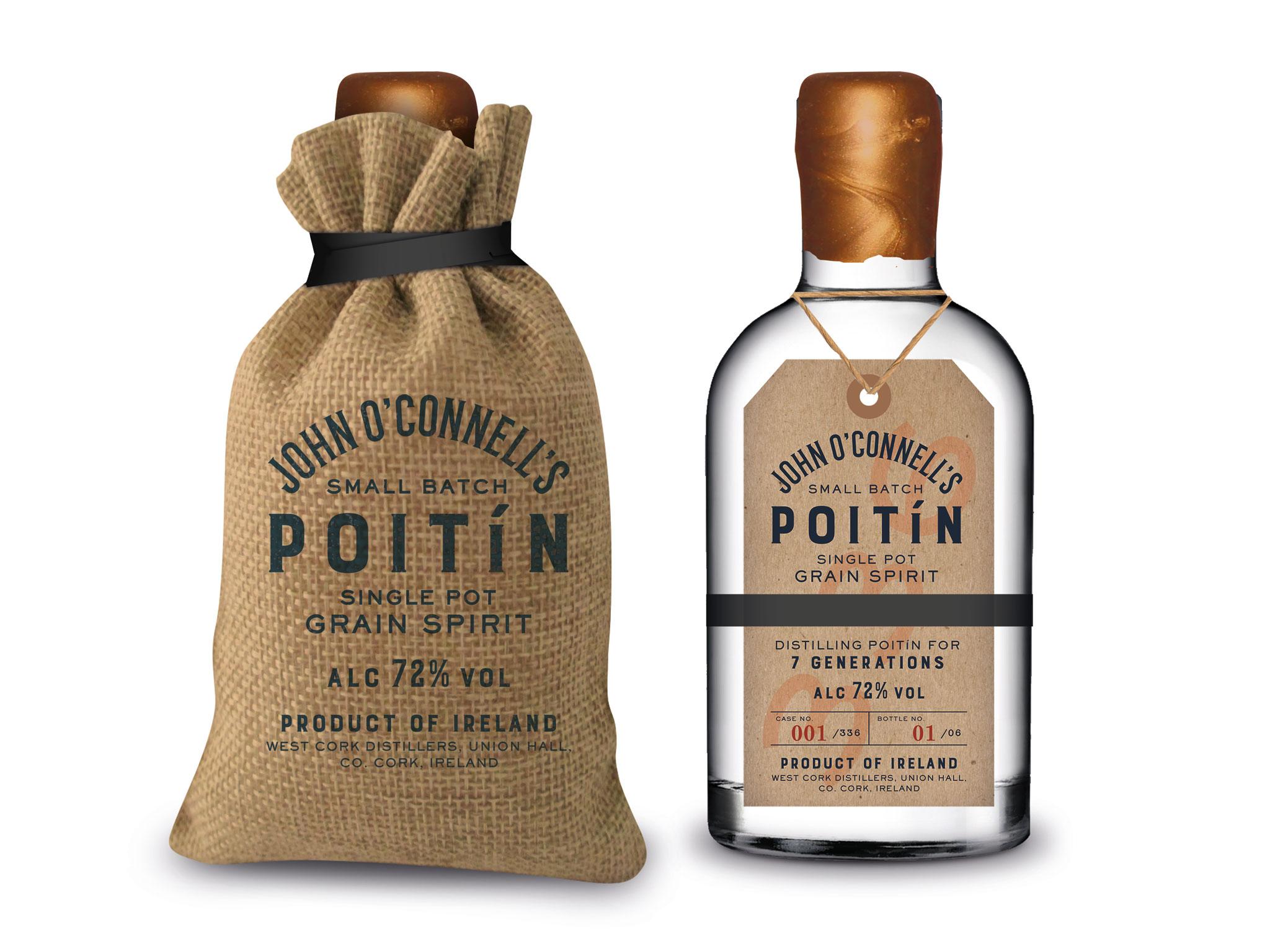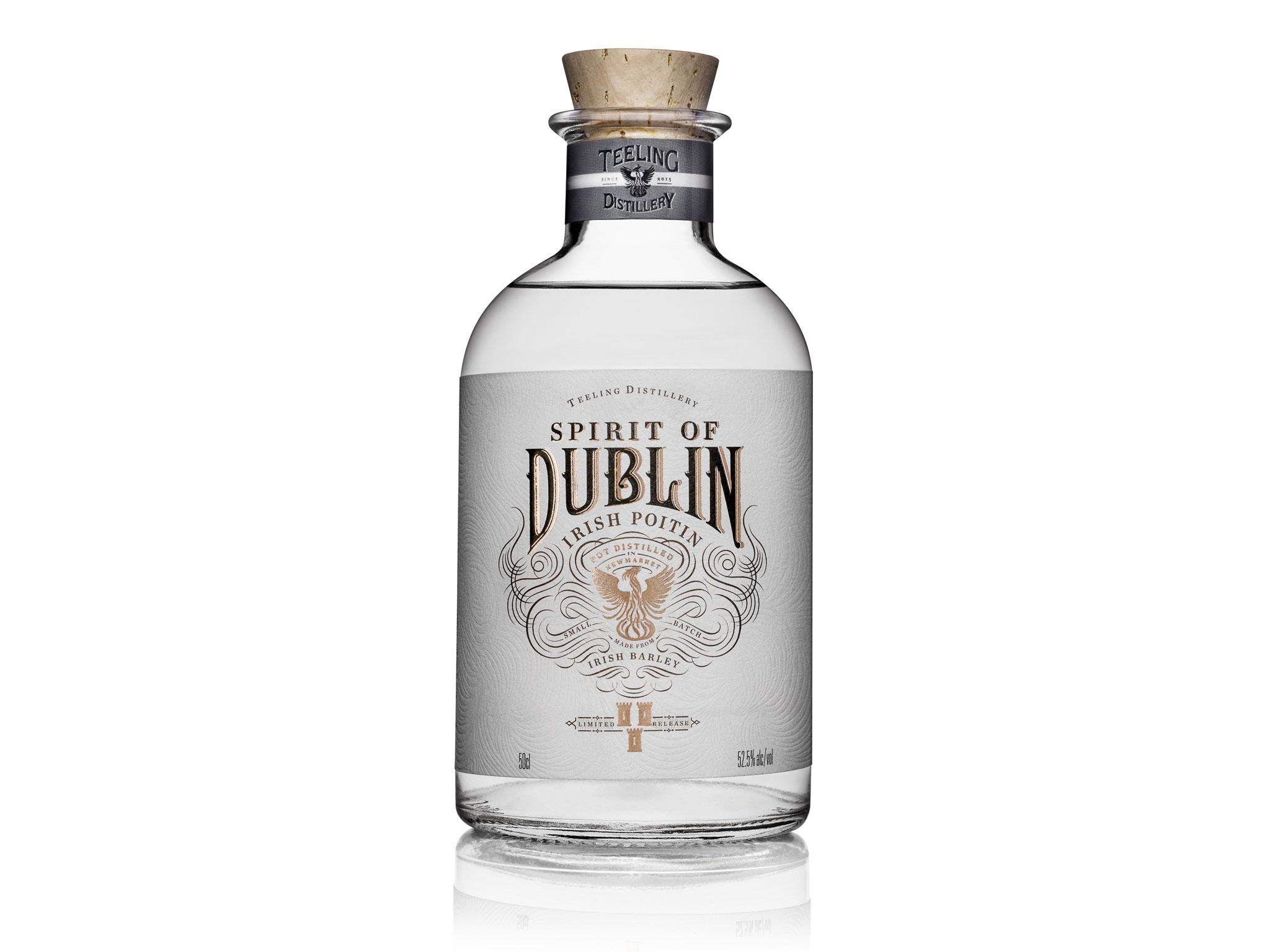5 best poitins
From illicit beginnings to the next big thing, it's time to get to know the Irish spirit

Your support helps us to tell the story
From reproductive rights to climate change to Big Tech, The Independent is on the ground when the story is developing. Whether it's investigating the financials of Elon Musk's pro-Trump PAC or producing our latest documentary, 'The A Word', which shines a light on the American women fighting for reproductive rights, we know how important it is to parse out the facts from the messaging.
At such a critical moment in US history, we need reporters on the ground. Your donation allows us to keep sending journalists to speak to both sides of the story.
The Independent is trusted by Americans across the entire political spectrum. And unlike many other quality news outlets, we choose not to lock Americans out of our reporting and analysis with paywalls. We believe quality journalism should be available to everyone, paid for by those who can afford it.
Your support makes all the difference.With St Patrick's Day fast approaching, the inevitable onslaught of green face paint, Guinness hats and shamrock bunting, is already beginning. So maybe it’s time to toast the occasion with something a little different… but very uniquely Irish.
If you’ve never heard of poitín before, you’re not alone. Also known as poteen (and pronounced potcheen – got all that?), this clear spirit has been called the Irish moonshine, was once illegal and boasts an ABV of anywhere between 40 per cent and 90 per cent. In short, it’s got a pretty colourful history.
Somewhat notorious for its potency, poitín production was illegal from 1661 to 1997 due to excise regulations. However, already distilled for centuries across Ireland by small producers who used the ingredients they had to hand, that did nothing to stop its production. Pushed into the underground, and with no official controls on production, the spirit somewhat passed into folklore, garnering both an illicit romanticism and a formidable reputation for blowing your socks off.
However, this characterful tipple is now beginning to establish itself as something a little more premium, and as a credible cocktail ingredient to boot. There’s those that will scoff at such a notion. But perhaps no-one knows more about its “revival” than Ciaran Ó Dubhthaigh who has steadily been adding more and more poitíns to his menu at the Sun Tavern in London’s Bethnal Green, since opening in 2014. The pub also runs tutored tastings.
“I think people are starting to appreciate it as a craft thing, and not just something that gets you pissed,” he says. “A good poitín should have a kick, it should have that heat, but there should be more to it. It’s important that it tastes of what it’s made of.”
So, what’s that? What technically is a poitín? Per its Geographical Indication (which was awarded just a year ago), a poitín is a clear, non-aged spirit produced in Ireland or Northern Ireland, and traditionally brewed, fermented and distilled from cereals, grain, whey, sugar beet molasses or potatoes. And it must be a minimum of 40 per cent ABV.
Varying combinations of these ingredients means there’s a vast array of flavour profiles in the finished spirit, from earthy, savoury notes, to a fresh grassiness, sweetness, and sometimes, a little smoke.
“That’s what makes it so good for mixing,” says Ó Dubhthaigh. “The alcohol gives it a nice presence, and it doesn’t get lost in the drink. We’ve used it a lot in Tiki drinks. It can handle citrus. Or you can use in place of rum or gin to give the classics another dimension, such as a White Negroni. As they’re all made from a different mash and have a different ABV, the brand you choose means you’ll get a very different drink at the end with each one.” Of course, sipping neat is another option.
While there are a number of excellent poitins being produced that are only available locally, here is our pick of the best of those available more widely that offer both a decent kick, with a balance of flavour.
1. Bán Poitín, 48%: £35.45 for 70cl, The Whisky Exchange

Founded in founded in 2012 by Dave Mulligan, a bartender with a love for the spirit Bán (pronounced bawn) is produced at the Echlinville distillery in Northern Ireland from potatoes, malted barley, and sugar beet. In Mulligan’s words: “What started out as an interest in the illicit turned into a total obsession, a determination to bring this epic piece of Irish culture out of the underground and to the modern world.” Recommended served neat, over ice, or as a boilermaker when paired with a pint (Guinness would be a good choice), you’ll get aromas of toasted bread, and a little greenness, followed by a tingle of pepperiness. Add to that a sweetness and very soft mouthfeel which combined suggest something like marshmallow, and you’ve got yourself a lovely spirit, with enough complexity to really chew over.
2. Micil Irish Poitín, 44%: €36.99 (£31.52) for 50cl, The Celtic Whiskey Shop

Made in Galway and named after the distiller's great, great grandfather, this spirit is made from Irish grain and flavoured lightly with the locally sourced, water-dwelling bogbean plant. It’s a recipe that has been passed down the family for 150 years, but the brand has only been commercially available since 2016, with sixth-generation distiller Pádraic Ó Griallais at the helm. This one is an earthy poitín, with quite a sour initial bite, followed by almost honey and banana-like notes. A lingering velvety finish adds a little softness, but that pepper bite is still there. Shake with egg white, lemon juice and sugar syrup for a really excellent sour.
3. Glendalough Mountain Strength Poitín, 60%: £38.95 for 70cl, The Whisky Exchange

Hold on to your hats, we’re taking a bit of a leap in strength with this one. Glendalough is another distillery on a mission to revive the heritage of craft distilling in Ireland, and is also known for its gins made from foraged ingredients, as well as its Irish whiskey. This one is made using sugar beet and malted barley which, notably, is placed in virgin Irish oak before bottling. Though Glendalough also has a 40 per cent poitín, with the Mountain Strength, you actually get a very soft, buttery, vanilla nose with very fruity, almost blackcurrant notes. Yes it’s strong, but aggressive this is not. That softness initially carries through when sipping, though you get that characteristic “burn” part way through. However, the overall impression is fruity, with a hint of wood, and some wine-like notes. As Glendalough says: “Mix it, cut it, sip or straight shot it. Carefully.”
4. John O’ Connell’s Small Batch Poitin, 72%: £39.50 for 35cl, Harvey Nichols

West Cork Distillers produces a number of poitíns including its own brand, Two Trees. This particular poitín is named after the O’Connell family, who've been distilling for seven generations (and not all of those legally, of course). Probably the first thing to remark on is the tactile packaging, which includes its own hessian sack. All the better for smuggling with – shhh. Made from barley and sugar beet, this one has a very bready, biscuity nose, but is exceptionally sweet on the palate, with that chewy, savoury cereal taste coming after a short but powerful burst of heat. Yes, again it is exceptionally strong, but there’s a lot of flavour here and honestly, it’s not as scary as you might think a spirit of this ABV ought to be. Sip – trust us, it’s good – or use in place of dark spirits in your cocktails.
5. Teeling Spirit of Dublin Irish Poitín, 52.5%: £29.99 for 50cl, Master of Malt

If you like your booze, you’ve probably heard of Teeling Irish Whiskey. The distillery claims to be the first new distillery in Dublin for over 125 years, commencing spirit production in early 2015. But the brand has much older roots with the Teeling family first distilling in the city in 1782. This triple distilled poitín uses a recipe of unmalted and malted Irish barley, meaning it’s pretty sweet. There’s not as many layers of flavour here as some of the other spirits in our list, but if you’re new to poitín, this is a pretty good place to start. There’s a soft, creamy finish and a little fruit that add interest, but nothing to challenge and frighten you even if this is higher in strength that some of our other picks. Sip and savour over ice.
The Verdict: Poitins
Poitín is not going to be for everyone. But there are a number of great ones that are both approachable enough for newbies, but also interesting and complex enough for those who are used to strong and complex drinks. Our pick of those has to be Bán, which delivers a beautiful depth of flavour.